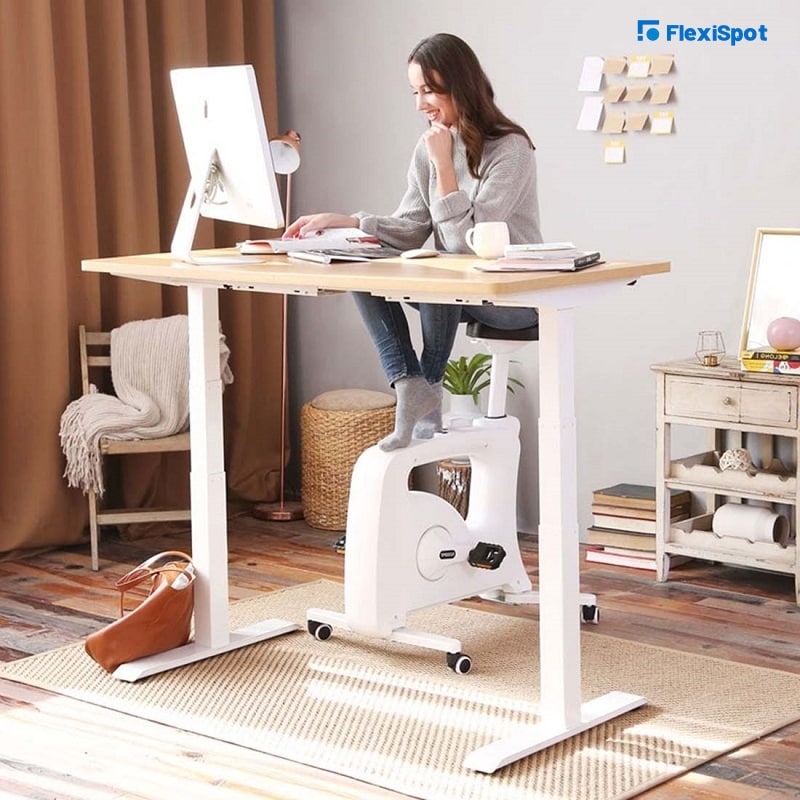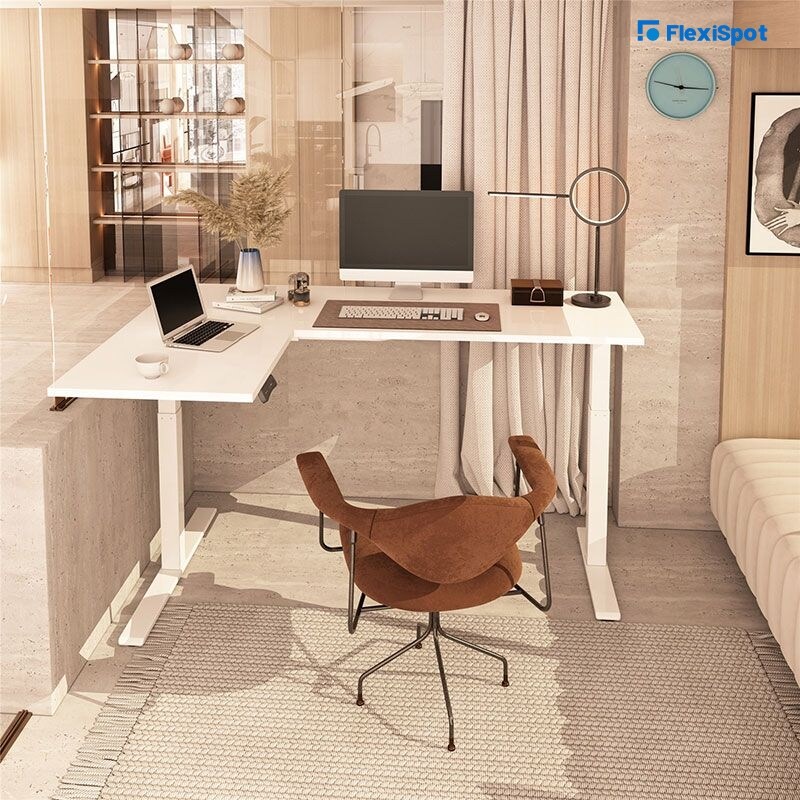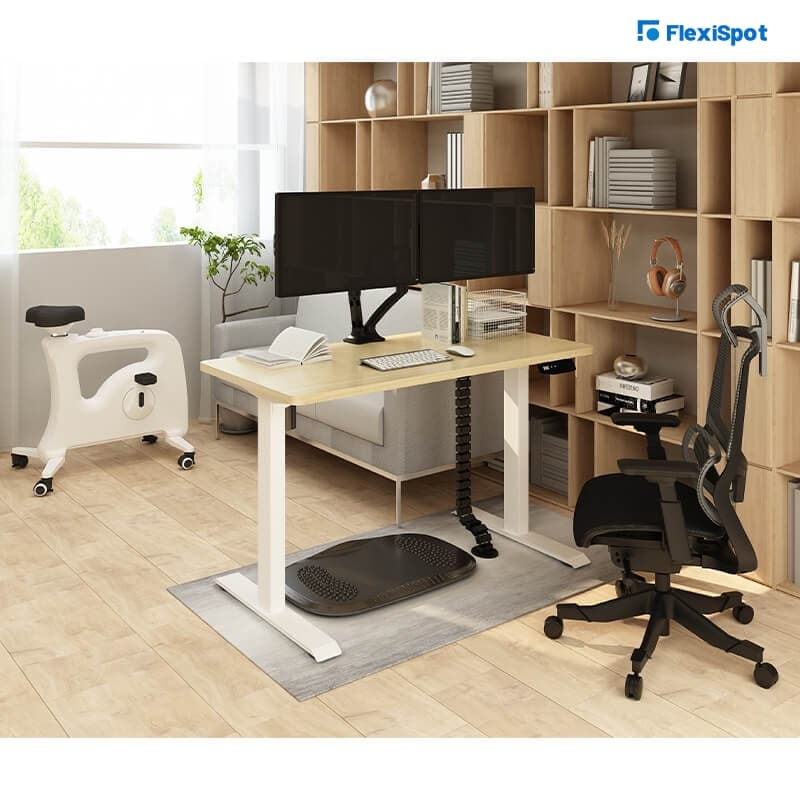In years past, a home office was regarded as a luxury more than something people required in their houses. Those who had them, in turn, adored a quiet office space, one in which they could focus on their tasks or even read without being constantly interrupted or distracted. Driven by cultural evolutions, advances in technology, and even trends, this narrative has changed in recent years, more so following the pandemic, which saw many of us work remotely from home. The shutdown saw most people stranded at home, unable to get to their offices for work. However, most people were not prepared for this, and their homes attested to the fact. They found it hard to achieve any productivity working in the current setups as distractions and interruptions were everywhere, leaving many scrambling to put together workspaces on short notice. It highlighted that having a home office may almost be more important than a guest room in the modern world. Aside from this, there are other reasons why it’s great to have a home office.
Why should you have a home office?
Being able to Focus:
If you are like most people, then your home is probably filled with things that can act as a distraction, such as TVs, entertainment systems, personal computers, and even the kitchen environment. Although beloved and somewhat necessary to many, all these can distract us from completing tasks related to work, even if it’s just to have an impromptu video call with coworkers. A dedicated home office enables a person to have a workspace that is private, quiet, and free from distractions.
Maintaining Work-Life Balance:
In an age where many families are strained by parents’ commitment to work, having a dedicated room where you can handle all your work-related tasks separately from the rest of the house is hugely beneficial. A home office makes it possible to switch between work-mode and casual because of the physical distinction. This means that a balance between work and life at home can be achieved without sacrificing productivity or spending time with loved ones.
Having a comfortable work area:
As mentioned earlier, most people who were new to working from home found their homes uncomfortable to work in. This resulted in many reporting decreased productivity. They struggled to complete tasks in the current hastily put-together setups, and body ached from bad posture. The latter is especially serious as working in bad postures for extended periods can cause serious complications such as fatigue, poor circulation, and even loss of motivation. In this regard, having a dedicated home office is essential as you can customize it and its accessories to fit your specific tastes, consequently avoiding the above.
Merely having a home office, however, is not satisfactory. This is because the look and feel of the area are crucial, stemming from the fact that it is dedicated to accomplishing work-related tasks, many of which require focus. A home office that is encouraging and tailored to a person's likes is more likely to result in increased productivity than cold and bare ones. In this breath, there are several reasons why you should design and decorate your home office, including:
Positive environments raise productivity:
This means that office spaces should not be so bare that they feel like classes in military school. On the contrary, a home office should be adorned with photos of memories, notes containing messages of motivation, and even wall art with inspirational quotes. You can also paint the room's walls your favorite color, which will inherently cheer you up while you work. Incorporating these elements will guarantee a home office that subconsciously motivates you to continue working.
The need for a space for taking breaks:
“All work and no play makes Jack a dull boy"; this expression could not be more genuine. Working for long periods without taking breaks will undoubtedly result in burnout. However, the home environment can have many distractions that can see you procrastinate when taking breaks. It is thus essential to have a home office that will let you take breaks away from the rest of the house in between tasks. This will allow you to work while taking breaks, free from the temptation of relaxing caused by distractions such as TVs.
The importance of organization to productivity:
Decoration of a home office involves more than just aesthetics; the need for organizing your work-related accessories is also crucial. This is because the home environment can have a lot of traffic and furniture that can see crucial elements of working from home be misplaced or even damaged. As a result, it is crucial to have a dedicated workspace that contains organization tools such as files, a calendar, a planner, computer accessories like cords, and stationery like pencils and erasers. An organized home office will ensure that your work is efficient and productive.
Having understood why you should decorate your home office, it is crucial to understand the fundamentals of setting up one. As with everything in life, home office décor has a set of fundamental aspects to any attempts towards setting up a workspace. These refer to the primary factors that anyone must consider if they desire an aesthetically pleasing and highly functional home office.
So what are the four most crucial factors in setting up a home office?
Privacy
Privacy is without a doubt one of the most crucial factors to consider when designing a home office. As with any office, work-related tasks must be attended to in private environments and away from distractions. Setting up a home office in one corner of the living room would be strange because things such as the TV and even other family members can easily deter you from focusing on the task at hand. It is thus essential to consider the level of privacy when deliberating on setting up a home office.
Separation
If your home office is not separate from the rest of the house, maintaining a balance between work and life can be extremely hard as your job will follow you everywhere or vice versa. It is thus necessary to consider the creation of a clear boundary between the part of the house being used as a home office and the rest so that you can switch from work mode to casual and back.
Lighting
The importance of lighting to a room's general mood and vibe cannot be overstated. The amount and type of light used or present in a room can significantly affect productivity and overall mood. A room that receives more light will appear inviting, warm and generally lighten your mood compared to a perpetually dark one. In addition, dimly lit rooms will cause strain on the eyes during reading or using the computer. It is thus necessary to consider the lighting that your home office will receive when setting up.
Comfort
Imagine having to prepare 50 spreadsheets while sitting on a wooden chair, typing on a desk that is too high, and sitting in a position directly facing sunlight; how would your mood and productivity be at the end of the day? Albeit underrated, comfort is precious when setting up a home office. This is because studies show that people are more are happier and more productive when they are moderately comfortable. It is thus essential that you consider comfort when setting up a home office because working on tasks for extended periods can be exhausting.
That being said, it is easy to make mistakes when trying to decorate your home office. Numerous aspects are involved in decorating a home office, and they all require attention. It is thus common for people to err when trying to design and decorate home offices.
5 common home office décor mistakes and how to fix them
Having lousy lighting:
As mentioned earlier, lighting is one of the most crucial factors to consider when setting up and decorating home offices. Making the wrong choice can result in an otherwise stunning home office appearing gloomy and uninviting. It may seem apparent, but it is common to see home offices that are dimly lit, resulting in too much strain on the eyes as you work. Dim lighting and using the wrong color bulb can completely ruin the working experience, significantly reducing visibility.
Lack of organization:
As described earlier, the organization is crucial to efficiency. However, not everyone agrees with this. It is common to encounter rooms littered with trash or even desks cluttered by stationery and accessories not correctly stored. The detriment of this is that things can neither be readily accounted for nor accessed, resulting in decreased productivity levels.
Addressing this requires using tools that aid in an organization, such as calendars, planners, file cabinets, stationery holders, and others, to organize the home office. Additionally, have a litter basket to avoid filling the room with crumpled notes and ensure that every home office component is at its designated places.
Lack of comfort:
The notion that a workspace should not be comfortable is misled. This is because of findings that suggest employees displayed increased productivity rates when they were made comfortable at work. Regardless, it is a commonplace for people to settle for home offices that are uncomfortable and rather uninviting. Working from home represents an opportunity to customize your work experience and make it more prosperous and fulfilling. It is thus essential to ensure your home office is comfortable.
Comfort in a home office can be enhanced by accessorizing to suit your preferences, selecting furniture that meets your specific needs regarding height, painting the walls colors that match your taste, having a potted plant to liven up the room, or even getting customizable seats and desks.
Lack of separation between home and office:
Separation was fundamental to home office design, but this doesn't stop some from letting the boundaries intertwine. This can be detrimental as you may inadvertently transfer work stress to home life and effectively disrupt work and life balance. This is especially true as the goal of a home office is to enable you to work from home, not extend your office to the house.
Fix: This can be fixed by sitting the home office in the room furthest from the rest to ensure that home life doesn’t interact. You can also create a physical divide using a bookshelf to provide a distinction; this makes sure it is not in the line of view when you are not in "work mode."
Lack of adequate soundproofing:
Even if you place your home office at the furthest end of the house, far from distractions, a work session can still be interfered with by sounds coming from outside the room. This may include barks from a neighboring dog or car honks; this may prove very distracting, especially during phone calls or video conferencing.
Aside from sitting the room at the furthest end of the house, this may be fixed by ensuring the room can be locked and made from solid wood to insulate against sound. You may also consider installing acoustic tiles to ensure minimal sound bounces off the wall for reverberation.


